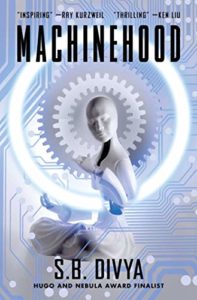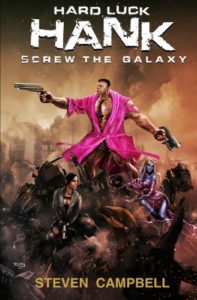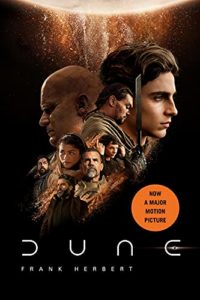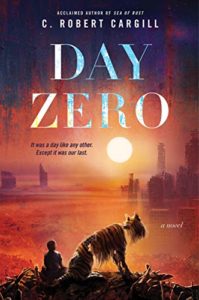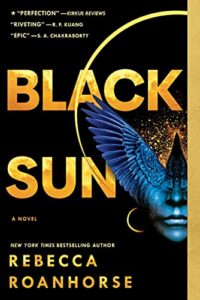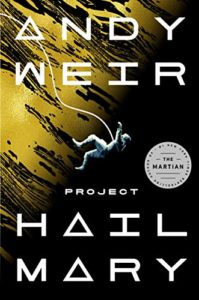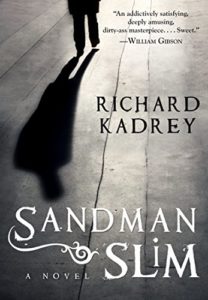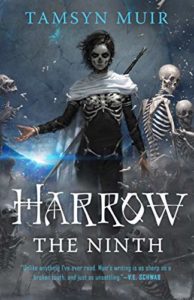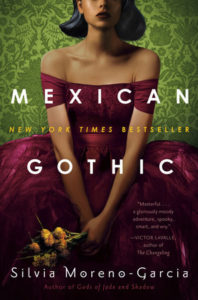This post has full spoilers for the novel, as I examine what we are shown of the Synarche society from Jens’ POV, and why I think it’s being portrayed as a…. if not seriously F’ed up, at least much more sinister society than Jens believes.
Lots
of
spoilers!
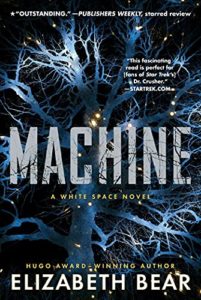
I. Secret Dystopia
A — Synarche Society is Incompatible with Freedom (as we know it)
The Synarche isn’t post-scarcity, so they need a way to allocate resources and incentivize labor. In the present day this is mostly done by offering to pay for things, or people’s time. In the Core, the government takes what it needs/wants.
If you had a needed skill, you might be required to enter service for a while–but if that happened, any debts or resource obligations you might have accrued from additional allocated resources would be forgiven at the end. – pg 141, ch 10
If you have a valuable skill, the government simply presses you into service! Normally call labor compelled via force slavery, but Jens doesn’t make that connection. Also note that you can be billed for resources that are used while you’re working for the government! Though they will graciously forgive that debt at the end of you indenture.
Where do those needed resources come from, anyway? Well…
And if you had a private ambulance, that counted as a needed resource, and the Synarche might call you back into service on a short-term emergency basis fairly frequently. – pg 141, ch 10
If you have valuable resources, the government will seize them and use them for it’s own purposes. If you have the skills needed to make use of them, they’ll press you into service as well. Again, Jens doesn’t comment on the fact that this is straight-up confiscation, with the possibility of more slavery thrown in.
What the hell do you do in a society like this? The only way to not be pressed into forced labor at any moment for an unknown length of time is to not have any skills the government values. And the only way to not have your property seized for unknown lengths of time (possibly permanently) is to not have any property the government values. This is a set up for societal collapse within a couple generations, as all valuable skills are forgotten and no new valuable property is created. Maybe some sememblance of valuable activity can sputter along by people hiding their skills and belongings very well and working via the black market, but it’s gonna be a massively crippled society.
Unless…
B — Rightminding Makes Freedom Unnecessary
I don’t think Bear is being particularly subtle here. Rightminding is introduced next to the super-Orwellian terms Right Though, Right Action, and Right Speech. Rightminding is the natural next step as soon as you have the technology. People will happily work without compensation for the government, and give up any desire to own anything, if you can physically mess with their brains to make them love it. These are great traits to have in a population of slaves. You don’t need the overhead of a massive security apparatus to force labor, take property, and crush slave uprisings, when all the slaves are happy in slavery.
At this point we run into some definitional problems, though. One of the things that makes slavery terrible is the violence needed to enforce it, and the misery it brings upon the enslaved. That’s why the word “slavery” has such awful connotations. But if violence is unnecessary, and people are working for free happily, can one say this is bad? No one is getting hurt. Is it fair to call it “slavery” with all the negative connotations that brings?
I think it might be. When someone is drugged, and consents to sex due to this drugging that they wouldn’t otherwise consent to, this is still considered rape. I don’t see why things would be that different if the drugging made someone consent to confiscation of their labor, life, and property. Rightminding is a gentler control mechanism than a whip, but it’s still forced upon the victim. We see a couple examples of Sally (the Big Sister of the novel) forcing changes in Jens emotions and thought processes when she judges it necessary. Sally also has control over something as basic as when Jens is conscious by dictating her sleep periods. Jens is in control of her own actions only so far as it meets with Sally’s approval. Like any infant, if Jens strays too far from Right Action she is gently corrected.
C — It’s Necessary, Though
The best dystopias are the ones where society is forced into this horrible state through necessity. That’s what makes them good warning-stories. At first the Synarche appears to be such a dystopia. In the world of this novel, this is the only way to prevent complete civilizational collapse. Humanity already experienced one such collapse, approx 600 years prior. Due to failures of trust, coordination, and empathy, the human race came to the brink of extinction. Rightminding may be abhorent to the standards of us, the readers, but the only alternative is annihilation. It is better to live as a slave than to go extinct. And as long as we are doomed to slavery, it is far better for it to be a happy slavery, where violence isn’t needed, and people can feel fulfilled and un-violated. The novel’s title, “Machine,” doesn’t just refer to the AIs, or the microbot cloud/corrupted virus combo, or Jens exoskeliton, or even any particular machine. It refers to their society as a whole, how it is a machine and everyone within it is but one moving part that must be aligned with all the others to work properly.
And that’s why we get Jens perspective on all this. She is rightminded, and mostly happy in this society. We might find it borderline horrifying, but having a functional, fulfilled member living a life she enjoys in such a society shows us a steelman version of this type of world. It could work, people could be happy, and all it requires is fundamentally changing what it means to be human.
The truely insideous part of all this is that, mostly, Big Sister’s direct intervention isn’t needed. She only takes an active hand a few times. For the most part, Jens, and everyone else we meet in the novel, is Rightminding themselves into slavery, and doing it gladly. They have been raised from birth in a society that tells them this is the correct way to live. That anyone who doesn’t do so is atavistic, barbaric, and will literally bring about the collapse of civilization and death of the species. People who don’t Rightmind themselves are like the mobsters, warlords, and politicians of our era — parasites on society. To not Rightmind oneself is a sign of moral decay and perversion. Like most religions of today (including the secular activist religions), people feel such intense social pressure to conform that they do so of their own will, and think highly of themselves for doing so. Even if it means mutiliating their bodies, ritually humilitating themselves, or living under a bag while in public.
If that were the extent of it, well, that would be an interesting book on its own. Especially because there are a lot of people who currently argue that this sort of rightminding would be good for our species and we should be trying to implement something like it. Often by using the same sorts of social forces mentioned above. They probably don’t view this book as a dystopia, and consider it something to aspire to instead. But there is something more sinister going on, which demonstrates that this really is a dystopia, rather than a utopia I’m misreading.
II. Jens Is Being Presented A False World
A — The Synarche Doesn’t Work Like It Says It Does
The Synarche supposedly indentures any skilled people it needs, and confiscates any resources they need. There is no money in this society, there are only “obligations” that you can owe to the government, or that the government can owe to you.
First, how are these obligations tracked? If they’re recorded on papers that represent those obligations, that’s just another word for cash. I assume it’s illegal to give obligations to someone else, though, so more likely they are tracked in some database by the Synarche itself. That is, again, just another way of having money, although in this case it’s money that is completely under the government’s control.
But more importantly, how is it possible for anyone to be rich in such a society? Aside from personal favors, all transactions are under the perview of the government. It decides how much you owe it, or how much it owes you. One could maybe be comparatively wealthy by doing a lot of things for the few hundred people you know and can directly interact with, but there is no broader economy that isn’t under the control of the Synarche. Moreover, people can’t even inherit wealth and grow it over generations — when someone dies everything they have is confiscated by the government. Since inheritance is just a gift at the end of life, it follows that parents aren’t allowed to gift things to their offspring past a certain age (probably the age of majority), and people in general aren’t allowed to give large gifts to others, because both of those would trivially bypass the prohibition on inheritance.
If anyone is rich, it could only be via an act of the government. And yet there are rich people. There are people who “isolated a significant amount of personal resources from the community.” Who still managed to “hoard more resources than they had any imaginable use for.” More than they have any imaginable use for would have to be massive, especially in an interstealler society where people can easily come up with a lot more imaginable uses.
So without trade, finance, or free enterprise, somehow there are absurdly wealthy people in the Synarche, the equivalent of multi-billionaires for us. The only way this could happen is via Soviet-style funnelling of resources to party officials. The Synarche isn’t just taking people’s labor and property for the common good, they are using it to enrich a select elite.
B — Jens’ Mind is Being Manipulated Far More Than She Believes
We’re shown that the same system that manipulates emotions can alter or insert memories. This would explain why Jens doesn’t realize that the Synarche is funnelling resources to elite party members and instead blames wealth accumulation on “ingenuity, drive, or uncorrected sophipathology.” We’re never shown that this is what happened, so one could accuse me of unfounded speculation, but we are shown several other examples of her mind being manipulated :
1) Her bizarre aversion to sexuality. This future may literally be sexless, as humans don’t need sex to procreate. When Jens meets a liquid-metal style android, she is repulsed by the fact that it has a female form. She refers to it with revulsion as a sex-doll several times. Despite the fact that it doesn’t have a lifelike body, or skin, or any sorts of orfices. It’s just a stylized metallic humanoid form of the female variety, with the bugles and curves that implies. It takes a fair bit of time before Jens can even think of Helen as a person, because of her body.
Jens also adopts and speaks in pro-life philosophy late in the novel, when confronted with a technology that prevents growing humans from being “born.” Despite not having consciousness, the fact that they are human bodies that could have developed into new people is enough reason for Jens to kill actual, living people. This probably means that there is no sex in the future, so the abortion issue has gone away entirely, and there aren’t arguments in the popular culture about why human bodies without persons inside them aren’t more important than actual living people.
In addition, Jens developes the world’s least-convincing crush late in the novel. There are no indications whatsoever that Jens is attracted to her crush on any level, be it physical or emotional, either before or after her proclamation of a crush. It’s so stark and bizarre that it has to be some sort of clue from the author that Things Are Not Right Here. Someone has stripped sexuality from humanity, and they don’t seem to be aware of this.
2) Her personal incoherence. Jens several times displays her hatred of personal property, and of people who withhold more resources than they actually need from the rest of the community. And yet, Jens considers the exoskeliton that she lives within to be “hers,” and not something anyone has a right to take or change without her permission. In addition, she claimed crew quarters for a family of three when she joined Core General, despite knowing the marriage was over. She has kept spacious quarters that could be housing three people for herself and never returned them to the community, and doesn’t feel any sort of guilt over this. These look to be two examples of self-interest that escaped Rightminding, which makes it seem that there is a lot more forced Rightminding happening than she is aware of. Rightminding that isn’t catching everything, and is leaving her with compartmentalized conflicts. I suspect that’s part of what happens in her enforced “rest cycles.”
3) Her seething loathing of anyone with more resources than her. This is particularly strange, because in a society where wealth can’t be inherited, and you only get resources based on how much the Synarche believes you deserve, one would naturally assume that anyone with a lot of resources has done a great deal to serve and improve society. Those with the most resources should be the most revered, as they’ve given the most of their lives in service to the community. Those with almost nothing should be detested, as lazy jerks who take the housing and food and basic income created by others and give nothing in return. Instead, there is a boiling hatred in Jens core that oozes to the surface any time she thinks of, or is confronted with evidence of, people in society that have more than her. It’s ugly, and it’s inexplicible. Unless it was something inserted into her psyche by her Big Sister, Sally, who has been covertly manipulating her crew since long before this novel began.
4) Her continued adoration of Sally & her terrorist cabal. Sally is undoubtably a monster in this novel, as is her cabal. They discovered a derelict generation ship, full of ten thousand preserved humans. Did they seek to aid them? Did they alert anyone who could help stabilize the situation or diagnose the problem? No. They immediately thought “how can we use the lives of these 10,000 people to further our political agenda.” They didn’t particularly care how many people would die, as long as they could use them as tools to their own advantage.
-The cabal then put the ship under dangerous gravitational stress with novel technologies that hadn’t been tested for this, to move them where they could be “discovered.” But only after first infecting the crew and the shipmind with a computer virus that is potentially lethal to artificial life, including the life of Helen. It turns out its also potentially lethal to several other life forms, and can infect the mind-manipulation devices inside the brains of everyone in the galaxy. Reckless endangerment of not only those 10,000 people, but potentially all civilization.
-They then sabotage the galaxy’s largest and busiest hospital, resulting in untold injuries and deaths. The hospital is shut down for several days, during which unknown numbers of ICU patients die, and potentially others who would have been rushed to the hospital and saved during those days, where it operational.
-And why did they do all this? So that old people would be forced to die, rather than rejuvinating themselves in new bodies. That’s right — NAKED DEATHISM. Sally’s terrorist cabal was willing to kill hundreds or thousands of people, in the interest of getting to kill thousands of other people (and, eventually, everyone currently alive). They literally killed people so that they can kill people. I don’t know how more moustache-twirlingly evil one can be.
Despite the fact that Sally is clearly the villian, the novel (as narrated by Jens) continues to paint her in the best possible light though to the last page. She is a couragous revealer of the truth, who made a few mistakes she’ll be lightly punished for, but ultimately did was was necessary to expose a greater evil. The “real villians” are supposedly the people that Sally was fighting against.
Jens is fully in Sally’s thrall in this novel, and while we realize this, Jens never does. She has been throughly mind-fucked.
By the time I was about 40% of the way through Machine, I assumed the novel would be about Jens discovering how fucked up and corrupt her society is, how deeply she’s been altered and manipulated, and finding some way to fight back against it. By the time I was 80% of the way through I realized this was not even remotely the case. Jens stays ignorant the whole time. But we, the readers, see the cracks. And that is why…
III. This Series is a Trap!
A — It’s Meant to Appeal to the Super-Woke
Jens is coded very leftwing. All her cultural and political opinions are deeply Blue Tribe. To appeal to the highly woke she’s female, gay, disabled, despises sexy women, and absolutley loathes anyone with wealth. She lives in a literal communist “utopia,” where everyone else decides what you deserve and benevolent minders watch over you. She detests the Red Tribe-coded generation ship humans, and only tolerates them because she believes they’ll all be Rightminded into productive members of society given some time. She accepts woke shibboleths, and repeats them for applause lights from the reader on numerous occasions. The whole book felt like it had been read by a woke-sensitivity reader and adjusted wherever necessary to make it as woke-appealing as possible. This, of course, introduced some contradictions and conflicts, as outlined in Part II, but I think these are intentional.
B — It’s Meant to Reform the Super-Woke
The point is to get a strong, loyal woke readership. Once they are invested in the universe, maybe after another book or two, these cracks that we’ve been seeing will slowly start to widen. The world will open up, the characters will start to see the ways they’ve been mind-fucked, and the lies their society is based on. The contradictions and anti-humanism of extreme woke philosophy will begin to be explored and then exposed entirely. It’ll be done gently, not in a “you are evil for thinking this” sort of way, but in a “we were all deceived, and it’s horrible, but we can move past it together now” sort of way. It is, to be frank, very similar to how the later waves of New Atheism worked to deconvert religious fundamentalists, not by excoriating them, but by sympathizing with them and helping them see things for themelves.
Heck, the whole thing is foreshadowed by Jens’ breakdown late in the novel, as she realized that the institution she believed in and relied on to be her foundation of life had betrayed her. This will be the overarching theme of the series, and the place that some woke readers may well end up in, if this works out. But just like Jens discovered afterwards that there was still life after Core, that her friends and family were still there to support her, so will those that lose their woke fervor come out the other side realizing they are not alone, and the people who matter still love them.
In the end, I think many woke readers will get disgusted by the slow turn to reason the series takes, and abandon it. But not all of them. We reach who we can.
C — This Post Won’t Actually Ruin Anything
Look, I’m not the world’s smartest dude. If I can figure out this is happening, so can many others.
More importantly, my readership is tiny. In the grand scheme, posting my observations here will have no noticble effect on anything, cuz most of the targetted audience won’t ever see it.
Even if they do, they won’t believe it. The novel is written very woke-friendly, and the dystopia does seem very wonderful when described by a happy member of it, from the inside. You have to look to see the cracks it’s built upon. It’s easy to not see those if you don’t believe me, and don’t think they’re there. Poe’s Law gaurentees that this will be read as intended by almost everyone. Several people in my book club didn’t believe me that this is what Bear is trying to do. They see the dystopia, but they think it’s an accidental thing, a result of a true believer author stuck in an incoherent philosophy trying to make a legit utopia novel, and being blind to the cracks herself. They think further books will bear this out, and I’ll be embarrassed for making such a silly claim. If even the people who believe this is a secret dystopia don’t believe it was portrayed that way intentionally, what chance do the ones who believe it’s a legit utopia have?
Maybe they’re right. But I think Bear is playing the long game. And I’m here for it. :)
